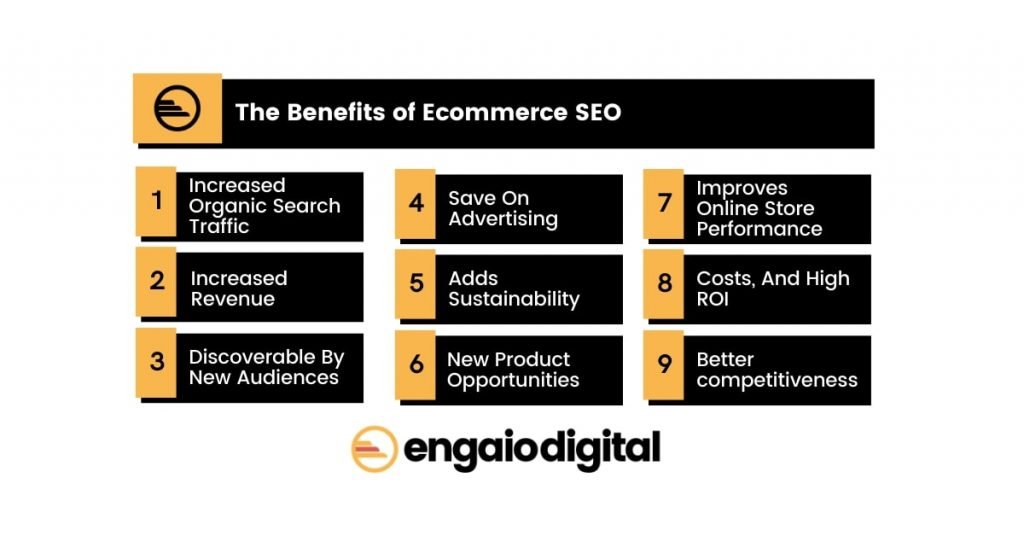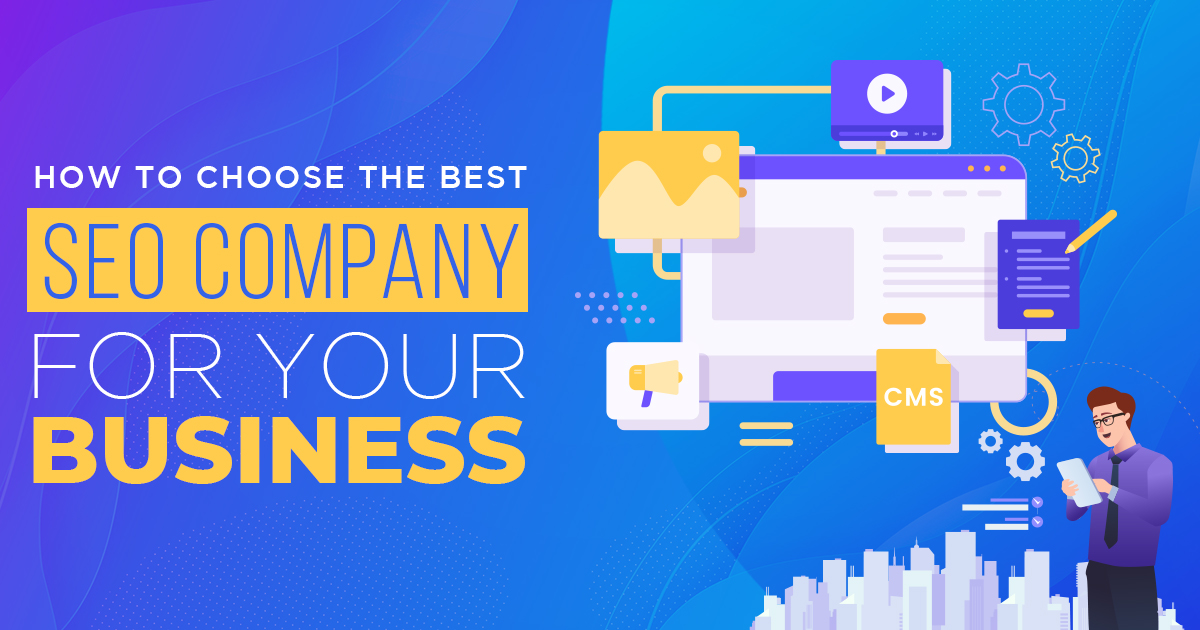Ecommerce SEO
Have you ever wondered why some ecommerce websites rank higher in search engine results pages (SERPs) than others? It’s not just about having a great product or service. It’s also about optimizing your website for search engines. This is where ecommerce SEO comes in.
Ecommerce SEO is the practice of optimizing an ecommerce website to improve its ranking in SERPs. This can be done by making sure your website is technically sound, has high-quality content, and is well-promoted.
Technical SEO
One of the most important aspects of ecommerce SEO is technical SEO. This involves ensuring that your website meets search engine guidelines in terms of site speed, mobile-friendliness, and structured data.
Site speed is important because it affects how quickly your website loads for users. A slow-loading website is likely to have a high bounce rate, which can hurt your ranking. You can improve site speed by using a content delivery network (CDN), optimizing your images, and minifying your code.
Mobile-friendliness is also important because more and more people are using their smartphones to shop online. A mobile-friendly website is easy to navigate on a small screen and loads quickly. You can make your website mobile-friendly by using a responsive design, which automatically adjusts the layout of your website to fit the screen size of the device being used.
Structured data is a type of markup that you can add to your website to help search engines understand the content of your pages. This can help your website appear in rich snippets in SERPs, which can lead to more traffic. You can add structured data to your website using the Schema.org vocabulary.
Keyword Research
Another important aspect of ecommerce SEO is keyword research. This involves identifying the keywords that your target audience is searching for. Once you know what keywords your target audience is using, you can optimize your website content to include those keywords.
There are a number of different ways to do keyword research. One way is to use the Google Keyword Planner tool. This tool allows you to see the search volume for different keywords and get suggestions for related keywords.
Another way to do keyword research is to use a keyword research tool like SEMrush or Ahrefs. These tools can provide you with more detailed information about keywords, such as their difficulty and competition.
Once you have identified the keywords that you want to target, you can start optimizing your website content. This includes including keywords in your page titles, headings, and body copy. You should also use keywords in your image alt tags and meta descriptions.
Content Marketing
Content marketing is another important aspect of ecommerce SEO. This involves creating and publishing high-quality content that is relevant to your target audience. By providing valuable content, you can attract more visitors to your website and improve your ranking in SERPs.
There are a number of different types of content that you can create, such as blog posts, articles, infographics, and videos. When creating content, it is important to focus on quality over quantity. You should also make sure that your content is well-written and engaging.
Social Media Marketing
Social media marketing is a great way to promote your ecommerce website and improve your ranking in SERPs. By sharing your content on social media, you can reach a wider audience and attract more visitors to your website.
There are a number of different social media platforms that you can use to promote your website, such as Facebook, Twitter, Instagram, and Pinterest. When using social media, it is important to be consistent and post regularly. You should also interact with your followers and respond to their comments and questions.
**Ecommerce SEO: Driving Online Success with Content and Optimization**
In the bustling digital marketplace, e-commerce reigns supreme, with businesses vying for online visibility and profitability. Amidst this competitive landscape, search engine optimization (SEO) stands as a beacon of hope, guiding businesses to the coveted first page of Google search results. For those seeking to master the art of e-commerce SEO, let’s embark on a detailed exploration of its intricacies.
Content Marketing
Content is the cornerstone of any successful e-commerce strategy. Informative, engaging content can help businesses establish themselves as thought leaders and trusted sources of knowledge within their industry. By providing valuable solutions to customers’ needs, businesses can attract and retain a loyal audience. Creating blog posts, articles, and videos that address common customer pain points and provide practical tips can dramatically bolster your e-commerce SEO efforts.
Keyword Optimization
Keywords are the magic words that connect your website to potential customers’ searches. Thorough keyword research is paramount to identifying the terms and phrases users input into search engines when searching for products or services related to your business. Incorporating these keywords strategically into your content, website structure, and meta descriptions gives your website a better chance of appearing in relevant search results.
Technical SEO
Behind the scenes, technical SEO ensures that your website is technically sound and easily accessible to both users and search engines. This involves optimizing website speed, mobile responsiveness, and ensuring crawlability and indexability. Technical SEO also includes implementing structured data markup, which helps search engines better understand the content of your pages and display richer snippets in search results.
Link Building
Backlinks from reputable websites act as votes of confidence for your website in the eyes of search engines. An effective link-building strategy involves reaching out to industry influencers and bloggers, guest posting on authoritative websites, and participating in relevant online forums. High-quality backlinks not only improve your website’s authority but also help drive organic traffic and boost your overall ranking.
Ecommerce-Specific SEO Considerations
E-commerce websites have unique SEO challenges that require tailored solutions. Optimizing product pages for specific keywords, implementing product schema markup, and ensuring a seamless checkout process are all crucial for driving conversions and improving the user experience. Additionally, leveraging social media platforms and incorporating user-generated content can enhance your e-commerce SEO efforts and build a loyal customer base.
**Ecommerce SEO: The Ultimate Guide to Boosting Your Sales**
In today’s fiercely competitive online marketplace, a strong ecommerce SEO strategy is more critical than ever before. By optimizing your website for search engines, you can attract more qualified traffic, increase your visibility, and drive more sales. But what exactly goes into successful ecommerce SEO? Let’s delve into the ins and outs of this essential marketing strategy.
**Content is King**
The foundation of any SEO strategy is high-quality content. Create engaging, informative content that provides value to your target audience and answers their search queries. Use relevant keywords throughout your content, but avoid keyword stuffing.
**Technical SEO: The Backbone of Your Site**
Technical SEO ensures that your website is easy for search engines to crawl and index. This includes optimizing your page speed, creating a sitemap, and ensuring your website is mobile-friendly. Remember, a fast and accessible website provides a better user experience and boosts your SEO ranking.
**Backlinks: The Vote of Confidence**
Backlinks are like votes of confidence in the eyes of search engines. When other reputable websites link to your site, it signals that your content is credible and authoritative. Focus on building quality backlinks from industry-influencers and reliable sources.
**Local SEO: Targeting Your Neighborhood**
If you have a brick-and-mortar store or provide localized services, local SEO is essential. Optimize your Google My Business profile, get listed on local directories, and encourage customer reviews to increase your visibility in local search results.
**Analytics and Reporting**
Track website traffic, conversions, and other key metrics to monitor the effectiveness of your SEO efforts and make data-driven decisions. Use analytics tools like Google Analytics to measure your progress and identify areas for improvement. Ask yourself, what are my top-performing pages? Where can we improve our conversion rates?
**Keyword Research: The Treasure Map to Success**
Before creating content or optimizing your site, conduct thorough keyword research to identify the terms your target audience is searching for. Use keyword research tools to find relevant keywords and determine their search volume and competition.
**Optimizing Product Pages: The Sales Hub**
Your product pages are where conversions happen. Include high-quality product images, detailed descriptions, and customer reviews to showcase your products and encourage purchases. Don’t forget to use relevant keywords in your product titles and descriptions.
**Social Media: The Gateway to Engagement**
Social media can amplify your SEO efforts by reaching a wider audience. Share your content, engage with your followers, and encourage them to share their experiences with your products. Social media signals can also influence search engine rankings.
Saran Video Seputar : ecommerce seo




Leave a Reply